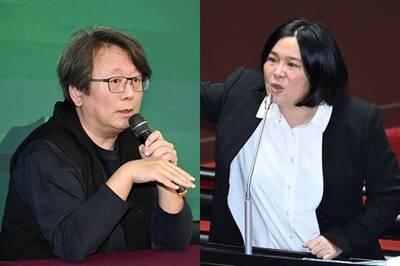《中英對照讀新聞》Childhood brain energy expenditure could be linked to weight gain 孩童時期大腦能量消耗可能與體重增加有關

在西班牙布爾戈斯市慶祝基督聖體聖血節上,參加傳統「跳嬰兒節」儀式的寶寶。(法新社檔案照)
◎管淑平
During early childhood, the brain uses about half of the body’s energy, which could have huge consequences for children at risk for obesity. A new study from Northwestern University links brain energy demand to weight gain and proposes that variation in energy needs for brain development could influence energy expenditure and weight gain patterns.
幼年時期的身體能量,約有一半都由大腦使用,這可能對有肥胖風險的兒童造成不小的後果。(美國)西北大學一份新研究,將大腦能量需求與體重增加聯繫在一起,提出大腦發展所需能量差異,可能影響能量消耗及體重增加模式的看法。
"We all know that how much energy our bodies burn is an important influence on weight gain," said coauthor Christopher Kuzawa, professor of anthropology in Northwestern’s Weinberg College of Arts and Sciences.
「我們都知道,我們的身體消耗多少熱量對變胖有重要影響」,報告共同作者、西北大學溫柏格文理學院人類學教授庫薩瓦說。
"When kids are 5, their brains use almost half of their bodies’ energy. And yet, we have no idea how much the brain’s energy expenditure varies between kids. This is a huge hole in our understanding of energy expenditure."
「5歲兒童的大腦消耗身體近半能量。然而,我們還不清楚不同兒童大腦能量消耗的差異。這是我們了解能量消耗的一大空白之處。」
Prior to this study, Kuzawa and his colleagues discovered that when the brain’s need for energy increases, the risk of weight gain decreases, and vice versa.
庫薩瓦和同僚在這項研究之前便已發現,大腦對能量的需求增加,體重增加的風險便會降低,反之亦然。
新聞辭典
expenditure:名詞,(錢、時間、努力等)開支、耗費。例句:We should reduce expenditure on our vacation.(我們應該減少度假開支。)
vary:動詞,差異,改變。例句:Prices of the same product varied greatly from store to store.(同一種產品的價格在各家店差異甚大。)
vice versa:副詞,情況反過來也成立。例句:I don’t like you, and vice versa.(我不喜歡你,你也不喜歡我。)













